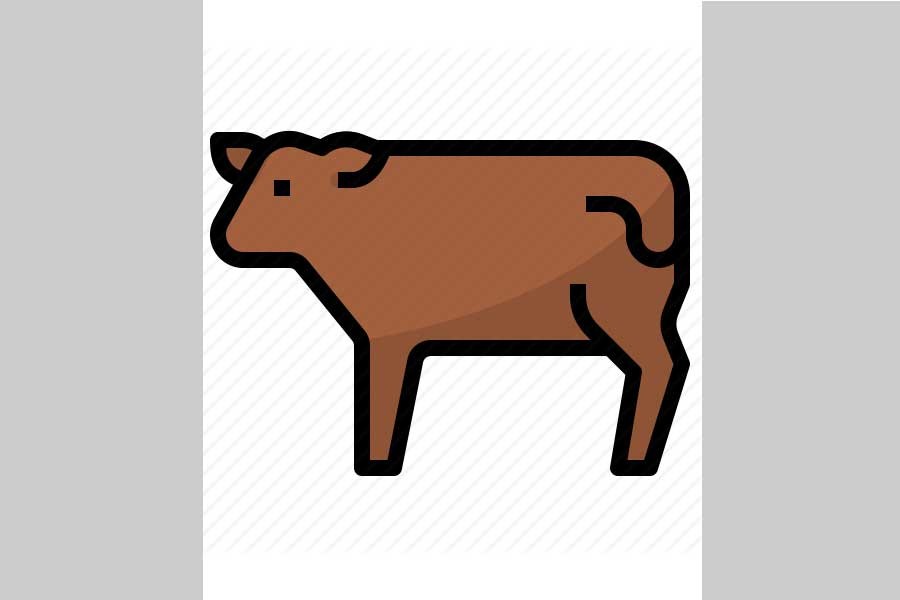That the country imports beef is no big surprise. What is surprising is the volume and year-on increase -- that too from far off Latin or African regions, among others. True, consumption of beef rises manifold during the yearly Eid-ul-Azha festival when demand for sacrificial animals, especially cows, cannot seemingly be fully met from local supplies. Until recently, clandestine cross-border supplies played a major role in meeting country-wide demand during the festival time, which, however, has declined considerably in recent times. This apart, one may have a feeling that local supply of beef -- thanks to the commendable expansion of dairy farming across the country -- should be good enough to fully or nearly meet the demand for beef round the year.
In reality, it does not seem so. It has been found that in the last five years import of beef has soared four fold. In 2013-14 financial year, Bangladesh imported beef worth US$728,000 which in 2017-18 rose to US$2.45 million. During this period the country imported beef from fourteen countries, including India, Australia, Brazil, Ethiopia, France, Korea, China and the UAE. No doubt, this is apparently incongruous in the context of increasing local supplies. Clearly, many regular consumers of beef in the country are unaware of the import content in domestic beef market.
There are more to the issue of beef import, and it is not difficult to see some gross anomalies in the way things are done. Import tariff currently applicable to imported beef, according to reports, is quite low. As a result, landed price of frozen beef is much lower than the price of the item at domestic kitchen markets which poses threat to local dairy farms. The country's dairy farming has been flourishing with good prospect of meeting local demand of beef. The sector has also attracted large number of entrepreneurs generating job opportunities for unemployed youths. Besides innumerable small farms scattered all over the country, big dairy projects are being run in many places involving huge investment and modern technology. It is here that imported beef, because of the low price, stands to cut market share of local dairies. Over and above, persistent low price may lure traders to import beef in larger volumes at the expense of the local dairy farms, which under no circumstance should be the case. So, there is a definite need for protection of the local farms by way of tariff on the imported stuff.
Under the circumstances, it is important to review the issue carefully. It would be a timely step to set minimum import value of beef to protect local dairy farms. It is expected that the Customs Valuation Department of the National Board of Revenue would do the needful in this respect.


